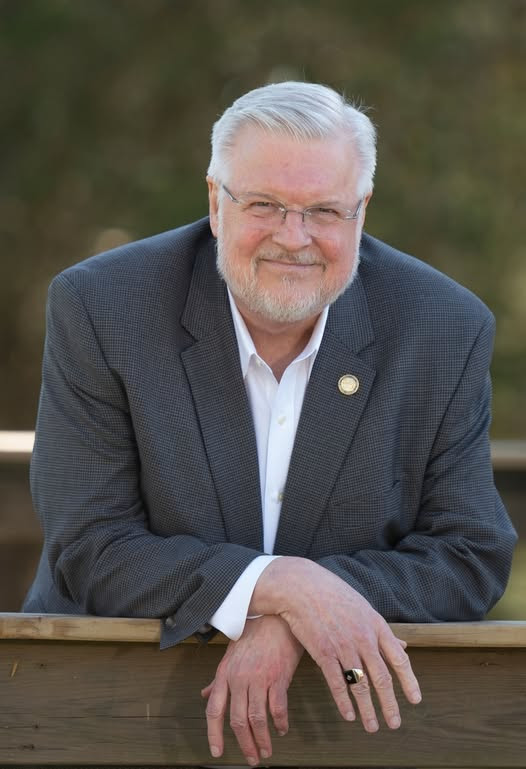An essential message to NC Lawmakers about Irnya’s Law.
By Rev. Mark Creech
Return America
From the earliest days of North Carolina’s history, willful murder has left its mark on the state’s conscience. In 1833, Frances “Frankie” Silver was hanged for the gruesome killing of her husband in Burke County. Though nearly two centuries ago, her case remains a part of North Carolina folklore, remembered as one of the state’s first high-profile murder trials.
By the turn of the twentieth century, mass shootings had also scarred the state. In 1906, Will Harris went on a rampage in Asheville, killing five and wounding a dozen with a rifle before he was finally gunned down. This was one of the first recorded mass murders in North Carolina’s modern history, and it shocked the public in much the same way that Southport in 2025 has. The lesson here: mass shootings are really not something new.
Then there was Christmas Day, 1929, when Charles Lawson slaughtered his wife and six of his children in Stokes County. The “Lawson Family Murders” still baffles historians as to motive. Some cite a head injury, others a collapse of sanity, but the brutality of a father turning on his family is remembered as one of the darkest holiday tragedies in American history.
The twentieth century would see politically motivated bloodshed as well. In 1979, the “Greensboro Massacre” occurred when members of the Ku Klux Klan and the American Nazi Party opened fire on a “Death to the Klan” rally, killing five people and wounding many more. That act of willful murder was not born of insanity but of ideology, hatred turned deadly.
Other cases revealed shocking violence hidden in ordinary homes. In 1985, the Eastburn family murders in Fayetteville left a mother and two young daughters brutally slain. The case dragged through the courts for decades and was eventually resolved with a death sentence after DNA evidence tied Timothy Hennis to the crime.
Just a few years later, in 1988, Winston-Salem witnessed the Old Salisbury Road shooting. Michael Hayes opened fire on cars passing by, killing four and wounding several more. Hayes claimed he thought his victims were demons, and his insanity defense succeeded. He was committed rather than executed. Yet Hayes was a man who had managed daily life in rational ways, leaving many to question whether mental illness should truly excuse the deliberate taking of life
In 1993, Kenneth Junior French opened fire in Luigi’s Restaurant in Fayetteville, killing four and injuring others. Though convicted of murder, the jury deadlocked on the death penalty, leaving him to serve life sentences instead.
The carnage continued into the new millennium. In 2009, Robert Stewart stormed a Carthage nursing home, murdering eight people and wounding others. Despite the evident premeditation, Stewart was convicted only of second-degree murder and sentenced to nearly 180 years in prison, sparking outrage among many who believed justice fell short of the crime.
More recently, the pattern of deliberate violence has persisted. The 2022 Raleigh mass shooting claimed five lives in a residential neighborhood, sending ripples of fear throughout the state capital. In 2025, a gunman opened fire from a boat on a Southport waterfront bar, killing three and injuring others in what authorities described as a highly premeditated act, one for which prosecutors may seek the death penalty.
Some say these tragedies prove the need for stricter gun control. However, the history of North Carolina suggests otherwise. Harris in 1906, Lawson in 1929, Hayes in 1988, and French in 1993 – all possessed guns and all murdered despite the laws already in place. Guns did not create the evil; they only increased its power. A firearm is a tool. It can defend the innocent as readily as it can be misused to destroy them. The moral decision lies not in the steel and powder but in the heart and mind of the one who wields it.
Nor are mass shootings unique to North Carolina. America’s history is marred with them as well. In 1949, Howard Unruh walked the streets of Camden, New Jersey, killing 13 with a pistol. In 1966, Charles Whitman fired from the University of Texas tower, murdering 14 and injuring more than 30. The phenomenon of mass shootings is not new to the country either. What is new is their frequency. The combination of a decaying moral order, wall-to-wall mainstream and social media coverage, and a culture of notoriety has turned them from rare horrors into recurring headlines.
Yet, in the face of this rising tide, North Carolina has gone nearly twenty years without carrying out a single execution. Since 2006, legal wrangling has created a de facto moratorium on the death penalty. While murderers multiply, justice is stalled. The message this sends to would-be killers is not one of fear but of impunity. A penalty delayed indefinitely is a meaningless penalty.
The real crisis is not the abundance of guns but the abundance of hearts hardened to the sanctity of human life, justice, and morality. The Scriptures say, “The heart is deceitful above all things, and desperately wicked: who can know it?” (Jer. 17:9).
A society that abandons its moral compass should not be surprised when its people increasingly abandon self-restraint. Gun control, at best, can tinker with externals; it cannot reach the inner seat of violence where murder is conceived. Only firm, swift, and righteous justice combined with a moral renewal of the culture can hope to stem this tide of destruction.
This is why the death penalty, consistently and properly applied, serves not as cruelty but as a solemn declaration that life is sacred, and that taking it unjustly will cost the offender his own.
North Carolina now stands at a crossroads. With “Iryna’s Law,” the legislature has taken steps to ensure that those guilty of the most heinous murders face the full measure of justice.
But suppose the Governor vetoes this bill, as some expect. In that case, it will fall to our elected representatives to decide whether justice will prevail or whether ideology will again eclipse the rights of victims and their families.
For the sake of our state’s history, for the protection of its future, and mainly for the honor due to the dead, NC lawmakers, please stand firm. Override Governor Stein’s veto. End the moratorium in practice by making Iryna’s Law the voice of justice North Carolina desperately needs.
Update:
On Friday, October 3, 2025, Governor Josh Stein signed House Bill 307, also known as “Iryna’s Law,” into law. The measure, prompted by the tragic stabbing of 23-year-old Iryna Zarutska on Charlotte’s light rail in August, aims to end cashless bail for violent offenders and expedite death penalty appeals.
Governor Stein acknowledged the need for stronger public safety measures, saying, “My top priority is to keep people safe. Everyone deserves to be and to feel safe in their daily lives, on their way to and from work, at school, at their place of worship, in a restaurant and in their own home.”
HB 307 requires judges to consider whether a suspect poses an unusual risk of violence before setting bail. The law also sets a two-year deadline for appeals in death penalty cases, a significant change from the current system, where appeals often stretch for decades. North Carolina currently has 122 inmates on death row, with no executions carried out since 2006.
Return America actively supported this measure and is grateful to the NC lawmakers willing to address this urgent issue. Although the Governor expressed that he was not happy about the death penalty provision, he nevertheless had the wisdom to sign the bill. For this, we are thankful. This is a great victory for Return America – a great victory for North Carolina.
Related Article: Bleeding Under the Blade of Lawlessness


